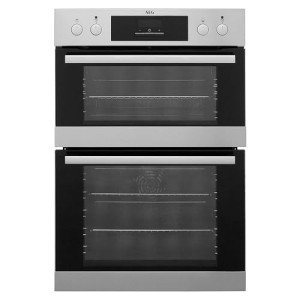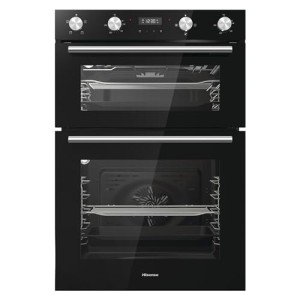9 Lessons Your Parents Teach You About Integrated Ovens And Hobs
본문
The Ultimate Guide to Built-in Ovens: Enhancing Your Kitchen Experience
Built-in ovens have become a popular option in modern cooking areas, offering a mix of functionality, design, and benefit. Unlike traditional freestanding ovens, built-in ovens are integrated ovens and hobs (simply click the up coming web site) flawlessly into kitchen cabinetry, providing a structured appearance that can improve the aesthetic appeal of any kitchen. This short article explores the various types of built-in ovens, their benefits, installation considerations, and upkeep pointers.
Comprehending Built-in Ovens
Built-in ovens are developed to be installed directly into kitchen cabinets, permitting a more customized kitchen setup. They typically are available in 2 primary types: single and double ovens.

Types of Built-in Ovens
Single Ovens: These units use one cooking compartment, perfect for smaller sized kitchen areas or homes where cooking needs are modest.
Double inbuilt ovens: As the name suggests, these units feature two different cooking compartments, allowing users to prepare numerous meals at different temperature levels all at once. This is particularly useful for large families or those who often entertain visitors.
Steam Ovens: These ovens prepare food using steam, which can help retain wetness and nutrients. Steam ovens are gaining popularity due to their health benefits.
Mix Ovens: These versatile appliances integrate the functions of a routine oven and a microwave, making them ideal for quick cooking and reheating.
Secret Features to Look For
When thinking about a built-in oven, there are numerous features that can boost your cooking experience:
Smart Technology: Many modern-day built-in ovens come geared up with smart technology, permitting users to control their oven remotely through smartphone apps. Features include pre-heating the oven, adjusting cooking times, and keeping an eye on cooking progress.
Self-Cleaning Functions: Built-in ovens with self-cleaning capabilities can conserve time and effort in kitchen upkeep.
Convection Heating: This feature distributes hot air for even cooking, making it perfect for baking.
Safety Features: Look for models equipped with features like cool-to-the-touch oven doors and automatic shut-off alternatives for included security.
Benefits of Built-in Ovens
Aesthetic Appeal: Built-in ovens supply a smooth and contemporary appearance that can boost the general design of a kitchen. They can be incorporated into cabinets, making them less intrusive than freestanding models.
Space Efficiency: Built-in ovens enhance kitchen area, particularly in smaller kitchens where every inch counts. They can be placed at eye level, making it much easier to keep an eye on cooking without flexing down.
Enhanced Functionality: With their innovative features, built-in ovens provide improved cooking experiences and increased performance compared to traditional ovens.
Installation Considerations
Installing a built-in oven requires careful preparation and consideration. Here are some key points to bear in mind:
Space Requirements: Ensure that the selected oven fits comfortably into the readily available cabinet space. Procedure the dimensions properly, representing ventilation and clearance requirements.
Electrical Requirements: Built-in ovens usually need a devoted electrical circuit. Consult with an electrician for correct setup.
Ventilation: Proper ventilation is vital for ideal oven efficiency. Confirm that the setup area has adequate ventilation to avoid overheating and ensure safe operation.
Professional Installation: While DIY installation may seem appealing, enlisting the help of a specialist can ensure that the oven is installed properly and safely.
Installation Steps
| Setup Step | Description |
|---|---|
| Action 1: Measure | Step the cabinet opening for your oven integrated. |
| Step 2: Prepare | Prepare the electric outlet and ventilation choices. |
| Step 3: Connect | Link the oven to power, guaranteeing all security steps are adhered to. |
| Step 4: Secure | Secure the oven within the cabinets, utilizing proper screws and brackets. |
| Step 5: Test | Run a test to guarantee the oven is operating effectively. |
Upkeep Tips
Regular maintenance can extend the life of your built-in oven and make sure ideal efficiency. Here are some maintenance suggestions:
Clean Regularly: Wipe down the oven built in outside and tidy the interior routinely. Usage self-cleaning functions where offered.
Examine Seals: Ensure that door integrated ovens and hobs seals are intact to preserve performance and cooking efficiency.
Display Performance: Pay attention to how your oven functions-- if you notice irregular cooking or uncommon noises, it might require professional maintenance.
Follow Manufacturer Guidelines: Always comply with the upkeep guidelines offered by the producer. This can assist prevent concerns and ensure that service warranties stay legitimate.
Frequently Asked Questions about Built-in Ovens
What is the distinction between a built-in oven and a freestanding oven?
- Built-in ovens are integrated electric oven into cabinets, using a structured appearance, while freestanding ovens are standalone appliances that can be positioned anywhere in the kitchen.
Do built-in ovens require more maintenance than regular ovens?
- Not necessarily. Upkeep depends upon use and cleansing practices more than the kind of oven. Routine care is important for all ovens.
Can I set up a built-in oven myself?
- While it is possible to install a built-in oven yourself, it is advised to employ a professional to make sure safe and accurate setup, particularly concerning electrical requirements.
What are the typical expenses of built-in ovens?

- Costs can vary considerably based upon brand, Integrated ovens and hobs functions, and requirements. Basic designs may start around ₤ 800, while high-end designs can exceed ₤ 3,000.
Are built-in ovens energy-efficient?
- Lots of contemporary built-in ovens are developed to be energy-efficient. Search for designs with an ENERGY STAR accreditation for the best integrated oven uk efficiency.
In conclusion, built-in ovens are an exceptional addition to any modern kitchen, integrating visual appeals with performance. By understanding the various kinds of built-in ovens, their functions, and the associated installation and upkeep requirements, homeowners can make an informed choice that boosts their cooking experience and overall kitchen style. As cooking innovation progresses, built-in ovens are most likely to play an integral role in the future of home kitchens, ensuring scrumptious meals are prepared with ease and convenience.
- 이전글바이올린연주자주된이유 25.05.20
- 다음글5 Laws Anyone Working In Programmable Car Keys Should Be Aware Of 25.05.20

